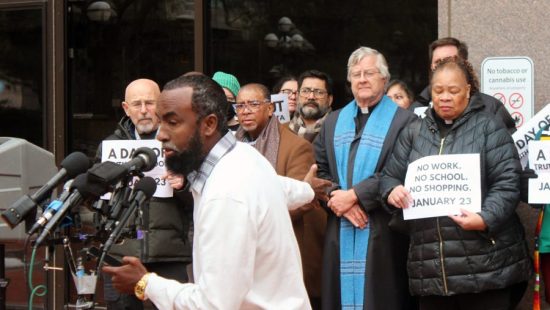The Trump administration has taken multiple steps to restrict financial aid programs for undocumented students. After the Justice Department filed a lawsuit against Texas, it went on to challenge similar policies in Kentucky, Minnesota, and Oklahoma. Most recently, on Tuesday, the department filed a complaint against Illinois for offering in-state tuition rates and scholarships to unauthorized immigrants.
According to the Presidents’ Alliance on Higher Education and Immigration—a nonpartisan coalition of American college and university leaders—22 states and the District of Columbia currently offer in-state tuition to undocumented students. The Alliance estimates there are approximately 510,000 undocumented students enrolled in U.S. colleges and universities, making up about 2.4% of the total student population.
The Education Department has also targeted university programs that provide aid to undocumented students. In July, it announced investigations into five universities that had awarded scholarships allegedly limited to participants in the Deferred Action for Childhood Arrivals (DACA) program. This followed an earlier decision to end federal subsidies for unauthorized immigrants enrolled in career, technical, and adult education programs.
These efforts are part of a broader initiative by the Trump administration to restrict access to public benefits for unauthorized immigrants. President Trump has argued that such actions are intended to deter illegal immigration and prioritize financial support for American citizens.
Federal officials argue that state policies offering in-state tuition to undocumented immigrants violate federal law, claiming they discriminate against out-of-state U.S. citizens who do not receive the same benefits. Officials have also asserted that colleges violate civil rights laws when U.S.-born students are excluded from applying for certain scholarships.
Critics warn that these policies could significantly impact the futures of thousands of undocumented students, making higher education less accessible and increasing financial hardship. They also point to potential negative economic consequences if fewer undocumented residents can afford to attend college.
Michael Clemens, an economist at George Mason University who specializes in migration, argues that subsidizing higher education delivers broad economic benefits. Revoking in-state tuition for unauthorized immigrants, he says, could undermine state economies. Higher levels of education typically lead to increased wages and tax revenue, reduced crime, and greater productivity—including the creation of more successful businesses.
However, Clemens noted that many undocumented immigrants already face limited access to capital and resources. Without financial assistance, many may be forced to abandon plans for higher education altogether.
“This is an action that is economically harmful in the service of a political agenda,” Dr. Clemens said.
The Education Department’s recent investigations were prompted by complaints from the Equal Protection Project, led by Mr. Jacobson. The group argues that some scholarships designated for DACA recipients may violate civil rights laws by excluding U.S.-born students.
Jacobson clarified that the group is not opposed to DACA recipients receiving scholarships. “We’re simply saying you can’t have scholarships that are exclusive to them,” he said.








